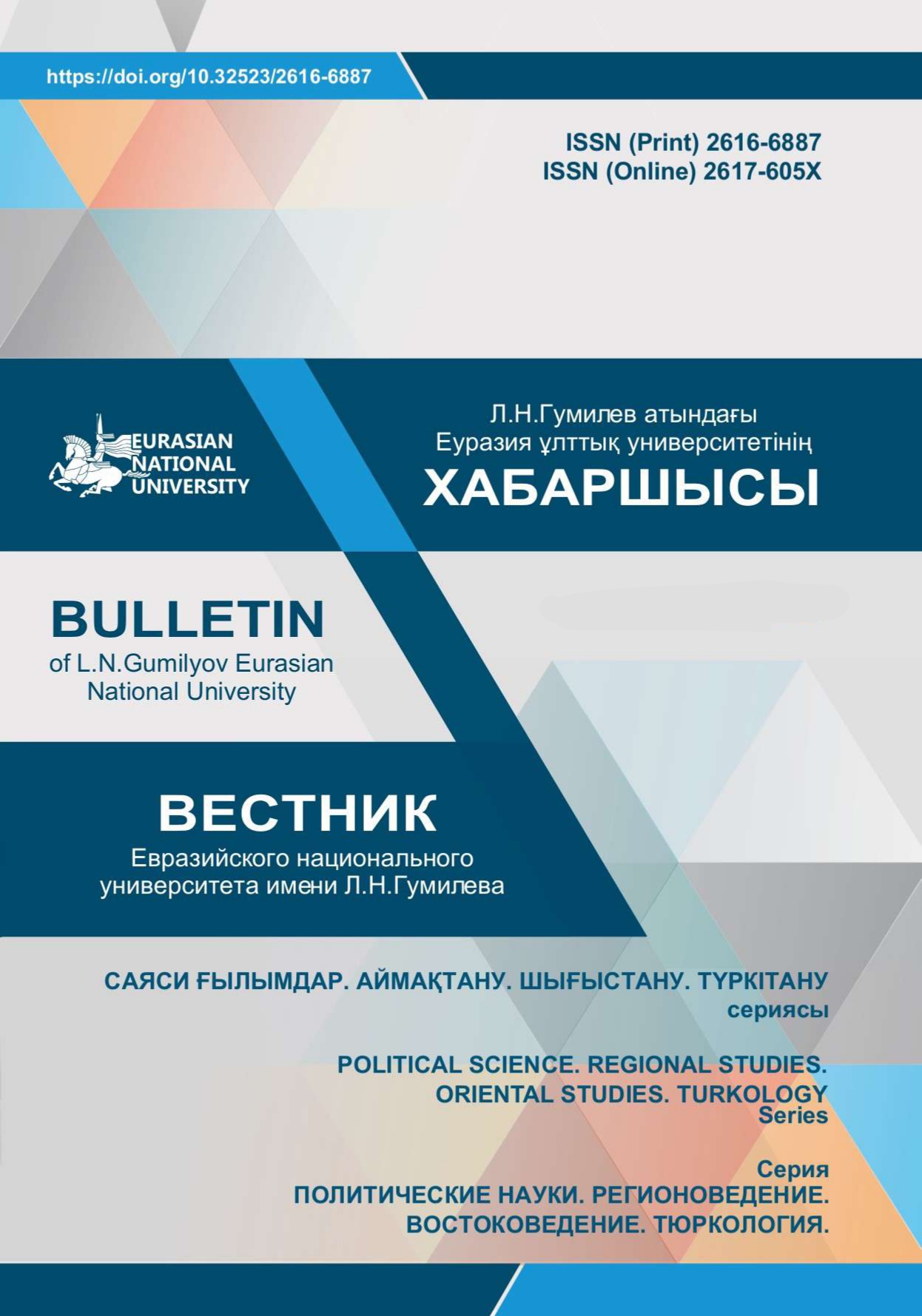Politicization of Islam in Kazakhstan in the context of the formation of a model of secularism
Views: 217 / PDF downloads: 0 / PDF downloads: 205
Abstract
Under the conditions of the transit of power in the political sphere, the issues of interaction
between state and public institutions become more relevant. Religion occupies a special place among the latter.
The article presents the author’s vision of the political aspect of the problem of the formation of the Kazakh
model of secularism. Historically, Kazakhstan has experienced several models of secularism, which are directly
opposite to each other in content and form. The transition from one model to another was the result of a change
of political regimes and was directly related to severe upheavals in the spiritual life of society. Today, the nature
of the external regulation of religious life by the state creates a special dynamic network of relations between
politics and religion, politicizing the latter. The formation of a model of secularism that meets national interests
depends on the state’s policy in the field of religion and the quality of its implementation. Based on the analysis
of state-confessional relations, the author made an attempt to show the place and role of the politicization of
Islam as an essential element of the emerging Kazakh model of secularism. The article identifies reasons and
conditions determining the politicization of Islam, as well as factors whose development may lead to its hyper
politicization and/or depoliticization.







